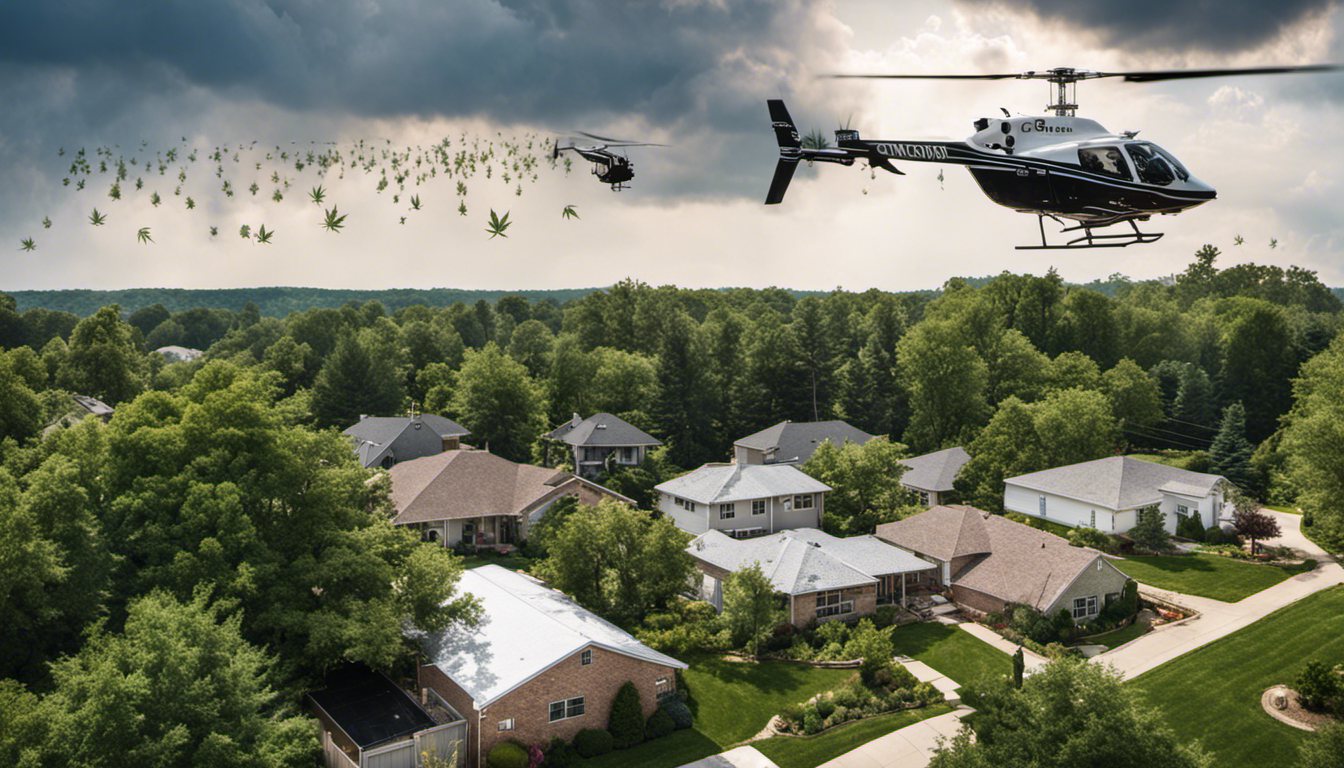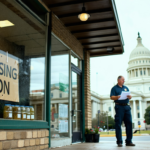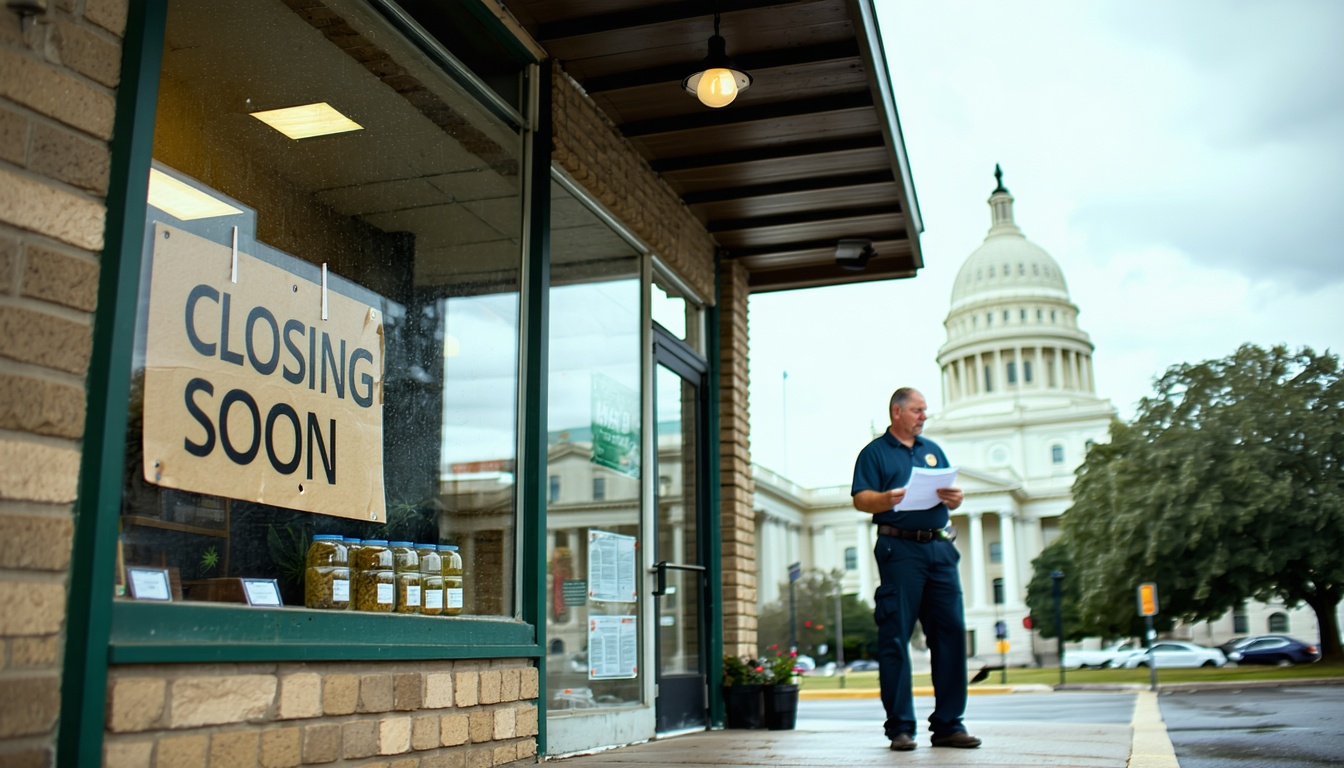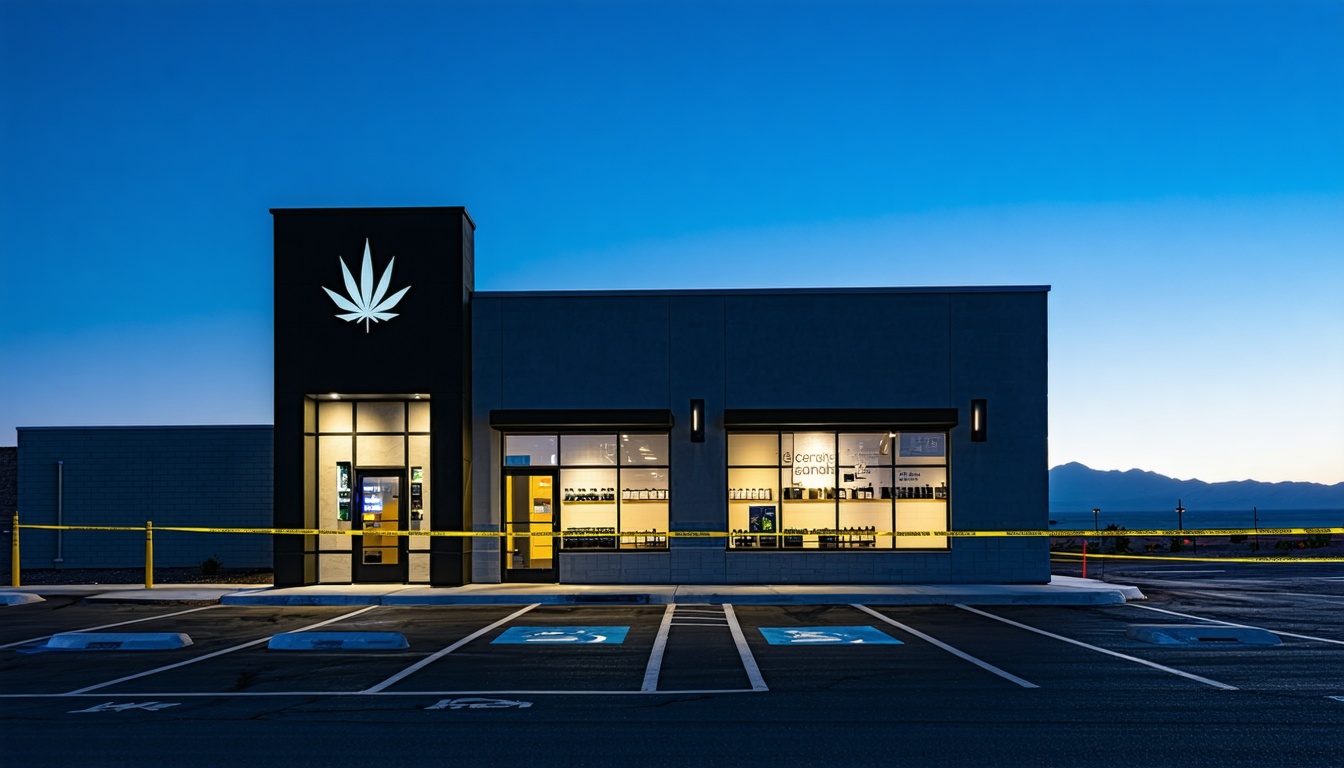Ohio Home Growers Seek Clarity on Cannabis Law After Raids
A recent cannabis flyover operation in Greene County has left some property owners feeling confused and concerned about the state’s home grow law. The operation, conducted by the Agencies for Combined Enforcement (ACE) Task Force and the Ohio Bureau of Criminal Investigation (BCI), resulted in the seizure of marijuana from some properties, but not others.
Chris Thompson, a Fairborn-area resident, was one of the property owners visited by law enforcement during the flyover. He was initially unaware of the purpose of the visit, thinking it was a search for a missing person or runaway suspect. However, he soon discovered that the officers were there to investigate his cannabis plants, which he had grown in a tall, outdoor dog enclosure on his property.
Thompson’s experience was not unique. Another property owner, Mijanou and Kyle Lewis of Yellow Springs, reported a similar encounter. According to Lewis, the officers told them they counted 40 plants from the sky, despite the fact that they only had 12 legal plants on their property.
The issue at hand is the lack of clarity surrounding the state’s home grow law. Ohio law allows residents 21 and over to grow and keep six to 12 cannabis plants on their property, as long as they are contained in a “secured closet, room, greenhouse, or other enclosed area” that prevents access by individuals under the age of 21.
However, the law does not provide a clear definition of what constitutes a “secured” or “enclosed” area. This has led to confusion among property owners, with some feeling that their efforts to comply with the law are not being taken seriously by law enforcement.
Greene County Sheriff Scott Anger acknowledged that the law is still new to Ohioans and that there is a need for clarification. He emphasized that the goal of the flyover operation was not to issue citations, but rather to educate property owners on how to legally secure their plants.
Thompson, however, felt that the operation was more aggressive than educational. He reported feeling afraid and experiencing sleeplessness and other health concerns following the raid. He also felt that he was not provided with clear instructions on how to proceed with enclosing his plants.
In response to the concerns raised by property owners, Anger suggested that the state legislature provide clearer guidelines on what constitutes a “secured” or “enclosed” area. He also emphasized the importance of youth access to cannabis, stating that the major concern of his agency is preventing minors from accessing the drug.












